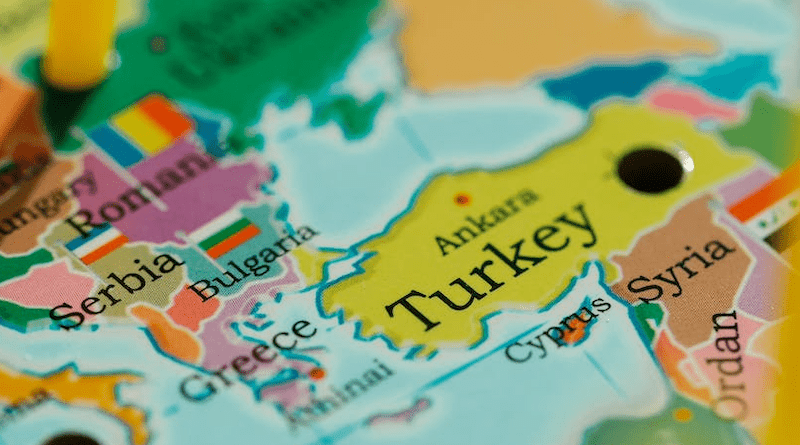EurAsiaReview.com: The Horn Of Africa States: The Turkey Page – OpEd [Part I]
http://dehai.org/dehai/dehai-news/516109
---------------------------------------------------
Ethiopia’s aggression against Somalia this year, is as unexpected as anyone can imagine. Although the two countries were more or less at peace with each other for some two decades, it would appear the peace was only in place because there was no Somali government of substance in the region for these decades. As soon as Ethiopia felt that Somalia was on the rise again, it came up with its true colors of antagonism and aggression with a direct attempt to break the back of the Somali people.
It was not enough what Meles Zenawi did in 2006/2007 through the Ethiopian-organized IGADSOM invasion of Somalia and the creation of religious terrorism in the country. This time, Ethiopia’s current administration, in the place of maintaining the growing cordial relations between the two countries, has forced one of the regions of Somalia to sign an illegal MoU on the first day of this memorable year 2024 in the Somali calendar, wherein it would take a part of Somalia’s sea and territory.
Türkiye, one of the key countries involved in both countries had no choice but to intervene to calm down the situation and keep it from becoming beyond a diplomatic impasse. It offered to mediate between the two countries. Several sessions of the mediation process have already taken place, but all have ended up to naught, so far.
One must note that Türkiye is a key partner of Somalia and is a vanguard party in Somalia’s forward moves to recover from the years of crises, socially, economically and even politically. It was, indeed, a basket case for years. Türkiye’s help was welcomed by Somalia with a full heart. On the other side, Türkiye was supplying Ethiopia with its iconic TB-2 UAVs to tilt the war with its breakaway Tigray region in its favor.
Türkiye had no choice but to intervene and mediate between the two countries as it has, indeed, a good relationship with both. This is a tall order, indeed. Ethiopia is no longer satisfied with its landlocked status and has avowed to have access to a sea, threatening thus all the smaller coastal countries in the region. Somalia appeared to be the weakest in the link and accordingly, it embarked on the illegal MoU, which has since become famous and an instigator of a potentially devastating war in the region.
Türkiye wants, as Somalia also wants, to have the MoU withdrawn, thus maintaining Somalia’s territorial integrity and sovereignty intact with Ethiopia having access to a sea. One must note that Türkiye had already committed itself to protect not only the waters of Somalia but also to the territorial integrity of the country. It is strategic military contract between the two countries.
Ethiopia needs to have access to new arms and technologies which Türkiye can supply, and Türkiye needs customers for its new and advanced technological weaponry such as the TB-2 UAVs. Both countries offer a ready market for Türkiye’s defense goods, and should it succeed in mediating between them, this would enhance it proactive foreign policy.
It is a risky proposition for Türkiye for if the mediation fails, it could lead to a destabilization of the region, which would have negative consequences for its interests in the region. In this respect, one must keep in mind Türkiye’s deepening involvement in the potential and growing hydrocarbon industry of the region, where it has signed contracts with Somalia. Settling the growing dispute between the two countries would greatly add to Türkiye’s prestige and open more doors for it in the African continent and beyond.
The exploration of oil and gas through cooperation with Türkiye would naturally lead to other contracts involving not only drilling activities but also to building contracts with respect to the transportation infrastructures in terms of pipes, storage tanks, and shipping equipment. One must note that Türkiye’s ambitions include becoming an energy distribution hub and Somalia could become an integral part of that process, wherein Somalia’s hydrocarbon transfers to Europe and beyond will pass through Türkiye.
The Turkish naval presence in the waters of Somalia is a stabilizing factor and a deterrent against the ongoing security fears of the region. There is now a growing Chinese, Indian and other naval forces in the region and since they do not see eye to eye on many issues, the insecurities could grow tangibly as well. Türkiye is helping develop a Somali naval force which will be able, as it used to be in the past, to protect its waters from normal threats of piracy and other criminal activities.
Türkiye’s involvement in the region has indeed international implications as major powers are also competing in the region. Türkiye’s involvement in helping protect Somalia’s waters will contribute to reversing the passage of terrorists, illegal migration, and illegal goods in the waters of Somalia, which appear to have dominated these waters ever since the collapse of the government of Somalia, some three decades ago.
Keeping the region stable is amenable to Türkiye interests as well the interests of the countries of the region. They have suffered enough from not only environmental calamities but also from internal civil wars. They do not need to add new intra-state wars, which would only benefit the evil forces that have so far dominated the region. This would help Türkiye in opening more doors for itself in the African continent and in particular the Sahel region which has similar terror and resource competition issues as the Horn of Africa States region.






